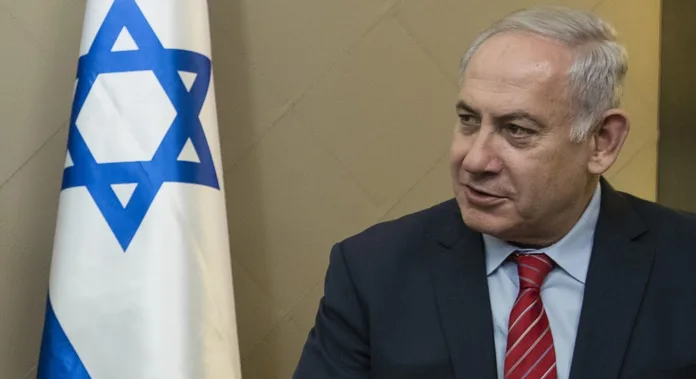A heated cabinet meeting reveals Prime Minister Netanyahu’s firm stance on maintaining Israeli troop presence in the Philadelphi corridor, despite criticism from Defense Minister Yoav Gallant
In a dramatic cabinet meeting on August 30, 2024, Prime Minister Benjamin Netanyahu reportedly declared that he prioritized maintaining Israeli troops in the Philadelphi Corridor over securing the release of hostages held by Hamas. This decision, disclosed during a heated exchange with Defense Minister Yoav Gallant, has intensified the ongoing debate within Israel’s security establishment.
The confrontation unfolded as Netanyahu pushed for approval of a series of IDF maps outlining the strategic importance of the Philadelphi Corridor—a narrow strip on the Gaza-Egypt border. Netanyahu insisted that a firm military stance was crucial for negotiating a successful ceasefire and securing the hostages’ release. In contrast, Gallant and other security officials argued that the premier’s rigid position on the corridor was undermining the chances of reaching a comprehensive deal with Hamas.
Embed from Getty ImagesAccording to a leaked transcript from the meeting, Gallant questioned the necessity of voting on the IDF maps, asserting that the focus should be on achieving a deal that would lead to the hostages’ release. He criticized Netanyahu for imposing his own strategy without consulting the security establishment, highlighting a significant disconnect between the prime minister and his defense team.
Gallant’s frustration was evident as he accused the cabinet of abandoning the hostages by prioritizing the military strategy over humanitarian concerns. He warned that Netanyahu’s position could result in the loss of hostages’ lives if Hamas refused to accept the proposed terms.
The debate became increasingly contentious, with Netanyahu defending his approach and asserting that a resolute stance was essential for forcing Hamas to compromise. Gallant countered by emphasizing the moral and practical implications of the decision, urging the cabinet to consider the human cost of their strategic choices.
The cabinet’s vote, which saw an eight-to-one outcome with one abstention, was seen as symbolic. The maps, already submitted to Hamas and international mediators, reflected Israel’s position but were criticized by some members for not adequately addressing the hostage situation. National Security Minister Itamar Ben Gvir’s abstention highlighted the internal divisions within the government, particularly over the extent of military presence in the corridor.
The heated exchange underscores the deep divisions within the Israeli government regarding its approach to the Gaza conflict and hostage negotiations. Netanyahu’s insistence on maintaining a strong military presence in the Philadelphi Corridor contrasts sharply with Gallant’s calls for a more flexible approach to achieve a ceasefire and secure the hostages’ release.
As the situation continues to evolve, the tension between Netanyahu’s strategic priorities and the security establishment’s concerns remains a significant factor in Israel’s approach to the ongoing conflict with Hamas.
Analysis
Political: The dispute between Netanyahu and Gallant highlights the complex dynamics of Israeli politics, particularly in relation to military strategy and humanitarian concerns. Netanyahu’s hardline stance on the Philadelphi Corridor reflects broader strategic priorities, while Gallant’s focus on hostage negotiations underscores the ethical and practical dimensions of the conflict. The internal government conflict illustrates the challenges of balancing military objectives with humanitarian imperatives.
Social: The debate over the Philadelphi Corridor and hostage negotiations has significant social implications, affecting public perception of the government’s handling of the Gaza conflict. The emphasis on maintaining a military presence versus securing hostages resonates with broader societal concerns about the cost of conflict and the value of human life. The cabinet’s decision impacts not only military strategy but also public sentiment and the moral dimensions of the conflict.
Racial: The racial and ethnic dimensions of the conflict are inherent in the broader geopolitical context, though the immediate debate focuses on military strategy and hostage negotiations. The Israeli government’s decisions regarding the Philadelphi Corridor and hostage release have implications for the broader dynamics of the conflict, affecting both Israeli and Palestinian communities.
Gender: The gendered impact of the conflict is reflected in the broader context of civilian suffering and the roles women play in conflict zones. While the immediate debate centers on military and strategic issues, the humanitarian consequences of the conflict, including the impact on families and children, have significant gendered dimensions. Women often bear the brunt of conflict’s effects, including the challenges of caring for injured or displaced family members.
Economic: The economic implications of the cabinet’s decision are intertwined with the broader costs of conflict. Maintaining a military presence in the Philadelphi Corridor has financial and resource implications for Israel, while the potential for a prolonged conflict affects economic stability. The cost of humanitarian efforts and the impact on economic recovery in the region are also relevant considerations.
